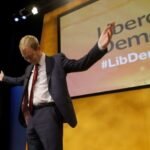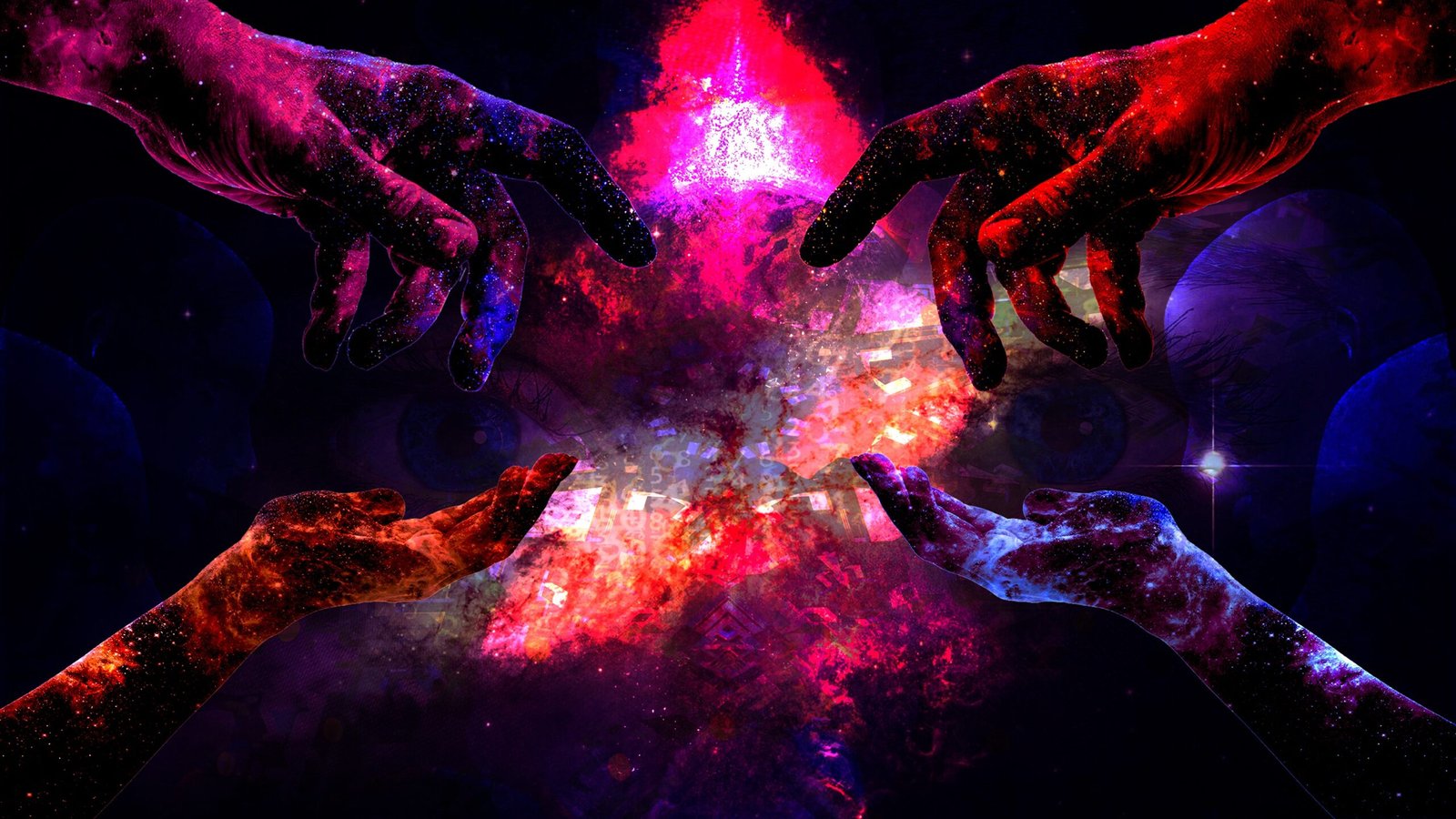Even vague intolerance or irrational attitudes towards LGBT people should not be left unchallenged, simply because it is in the guise of a minority religion
Earlier this week, in anticipation of the various Pride marches being held in various parts of the world, Al Jazeera reported that Sweden’s far-right had planned a Pride march through an area with a predominantly immigrant, Muslim population. This was newsworthy, because that location had been chosen by the organiser as an apparent provocation to the Muslim inhabitants. Anti-racist groups, as well as prominent activists on behalf of LGBT people, including the Stockholm Pride and the Swedish Federation for Lesbian, Gay, Bisexual and Transgender Rights (RFSL) have denounced the move, distanced themselves and a counter march has been planned. From a human rights perspective, it is hard to endorse the messaging and intentions of those protesting the Parade and organising counter march, and indeed, all committed to a fair and safe world for all should refrain from shutting down the controversial parade. Now you may wonder, is that wise? Or rather, are we not succumbing and fanning the flames of racism, xenophobia and anti-Muslim bigotry? Why would anyone committed to socially liberal values do that? I imagine there are several questions that such opposition could like to put forth.
Why hold a Pride march through an area where it will be ‘provocative’?
Here’s the first problem. On the one hand, various outlets and tabloids, generally labelled ‘right wing’, have been reporting on the culture clash between Muslims and western cultural values for a while now, and warning of the Islamisation of the West; while an equal number of outlets, described as ‘left leaning’, have decried the reports as Islamophobic, exaggerated, hyped up, or, as a legitimate tension that has to be tolerated. Both sides are talking at each other with little regard for the truth, which is somewhere in the middle.
The dominant narrative characterises immigrants as peace-loving and open to new ideas, as eager to integrate and contribute to their adopted countries, one that all of us who value human rights and human life, are inclined to support and believe. But if we truly believe that, why is planning a Pride march through an immigrant area considered as a provocation? An event can only be described as capable of provoking if it is designed to upset or anger a group or a community – which in this case presumes an opposition to the concept of Pride by the community.
In Sweden, with its strong tradition of upholding liberal and secular values and of extending rights and dignity to its LGBT population, is the question of Pride still one that should be upsetting and infuriating people? The Scandinavian countries are known for their progressive and laudable record on LGBT rights, and if, even in these bastions of tolerance, Pride cannot be held in certain areas without ‘provoking’ people, what does that say about the current situation? Are we then implicitly accepting that immigrants hold less than favourable views of Pride, and the LGBT community in general, and that such belief should be validated by separating such events from the interaction of immigrant communities?

In a liberal society, everyone is entitled to hold the beliefs they do, but that by no means implies that all such beliefs should be tolerated or validation. In 2017, by considering that a Pride march through a certain area will be a provocation to people of a certain ethnic and religious background, we are still taking several steps backward when it comes to LGBT rights. By even fearing that the march will be provocative, and that it should therefore be countered or condemned, the critics are acknowledging that a community may well hold views hostile to the LGBT community, and that it is a perfectly valid view to hold, and that it need not be challenged, confronted or even condemned. Currently, there are still a majority of countries in the world where homosexuality is criminalised, and punishable with death, imprisonment, caning, or worse. Passing over the idea that communities in Scandinavia, of all places, may still openly (and without opposition) hold views antithetical to the LGBT cause is extremely dangerous.

Do you think the far-right is doing this because they care about LGBT rights or women? They are using this as a weapon to demonise immigrants and justify their racism. This is not about LGBT rights but their own agenda.
It has to be noted here that the organiser of the parade, Jan Sjunnesson, has been described as far-right since he is the editor of Avpixlat – a website described by mainstream media as xenophobic and far-right, and that he was the former editor-in-chief of the official magazine of the Social Democrats, the Swedish political party known for hostile policies towards immigrants. Nevertheless, it is perfectly possible that the organiser does not, in fact, care too much about LGBT issues and that he is merely weaponising it against Muslims, staging a ‘provocative’ parade for publicity and bolstering support for his xenophobic rhetoric.
The problem here: the fact that the far-right co-opts LGBT rights for its own agenda does nothing to detract from the value of fighting for those rights. Activism and rights are constantly co-opted by a variety of parties for their own reasons. Corporates adopt symbols and rhetoric of the latest rights issue to sell products – in fact this trend has become quite commonplace. Cause campaigning is a tried and tested PR tactic by corporates as well as other groups, in that they promote activism for a specific cause in the hope that their brand becomes more palatable.
The co-opting of activism is not a new phenomenon, and sometimes genuine activists let it go because the cause or issue gets more visibility and patronage, or simply more money. In a less than ideal world, when rights struggles are both increasingly difficult yet sometimes have saleable value, this phenomenon is not a surprise. What is at issue however, is that as long as the messaging is appropriate, the nature of the group espousing the cause does not mean the cause is irrelevant. In this case, the fact that Sjunnesson may not care at all about LGBT rights, and in fact may be actively opposed to them, is of little relevance. The issue of focus should still be the idea that to hold the Pride parade would be problematic, an idea that should be challenged and fought.
One must also remember: a cause or an issue becomes a ‘weapon’ only when it is capable of being used to harm. If immigrant communities were as supportive of LGBT rights in these countries, these issues would fail to be effective weapons against them. If LGBT rights were indeed a non-issue in the area, the parade should not cause a problem.
Left leaning activists have also pointed out that the parade normally takes place in the centre of the city and there was no need to hold it in that area except to heighten tensions. That is also probably true, but if it were reversed, and a group wanted to hold the parade through an area known to be populated by far-right groups hostile to LGBT rights, I wonder whether these same activists would have condemned it quite so loudly.
By painting it as a conflict between the Muslim immigrants and LGBT rights, aren’t you propagating Islamophobia?
This is a fascinating trend. In today’s climate, reporting on prejudice or irrational beliefs, particularly of the Muslim community, is automatically labelled Islamophobia and accused of spreading hate and bigotry against Muslims. It may well be that when people read this, a certain amount of anger and ill feeling may arise. But lets step back for a moment and examine the source of the anger. Is it against the reporting? Or is it against the belief that LGBT people are somehow less deserving of human rights?

If there is ill feeling, is it because an opinion piece argues against homophobia? Or is it because people are angered by the existence of homophobia? Again, it may well be true that some writing and reporting hypes up facts and figures in order to paint a more grim picture than is true, in order to fan anti-Muslim sentiments. In this case, the facts and reported sentiments are from a network widely renowned for its pro-Muslim stance. The premises that form the basis of this piece are directly inferred from the above linked article. Accusing everything that points out a dissonance of fanning anti-Muslim bigotry may be stretching it a bit far.
Immigrant communities are entitled to their freedom of religion and they should not be forced to subscribe to our value systems and cultural norms regarding LGBT people. Why attack them for their religious belief?
It is this positioning of activists in Western countries that is befuddling. At some point, we are going to have to acknowledge that LGBT rights come into direct conflict with most institutionalised / organised religions. If we believe that we can progress without confronting this clash in rights, that is delusional. The question then becomes, in a fight between freedom of religion and LGBT rights, who wins?
In history, few groups have been as marginalised and ill-treated as LGBT people. Forced for large segments of history to hide or disown their sexual orientation or gender identity, as a group they have undergone untold suffering and horrors. In addition to struggling to accept themselves, LGBT people have been treated in horrifying ways in almost every country / culture in the world. Whereas religious groups who find themselves in a minority in one country may well find the scales tipped in another, they have also benefited from the relatively long and well established history of the right to freedom of religion. No one can validly argue that Muslims as a group, for example, have been persecuted throughout history. In a toss up as to who is more at risk therefore, LGBT people and their protection and well-being win by a mile.
Let us also not pretend that the religious condemnation of homosexual acts has its only consequence in the internal belief system of the individual – it never stops there. Branding homosexuality as a “sin”, and a sincere belief in the righteousness of this statement is the single most effective step to stripping LGBT people of their humanity, and the beginning of homophobia. This is not an exaggeration. Several days ago, a young boy died from his injuries after being raped for hours by a blunt object by homophobic classmates, and a while before two men were caned in public. At the minimum, in conservative, especially religious countries, from Indonesia to Ecuador, Russia to Saudi Arabia, LGBT people are routinely thrown out, gang raped repeatedly, humiliated, tortured, and killed.
It is the dehumanisation of LGBT people, which in turn has its undeniable roots in religious condemnation, that leads to others feeling entitled to inflict such savage violence on them, since they are considered as less than human. Even if things are not taken that far, even intolerance or aversion to LGBT people should be viewed suspiciously and drawn into challenge.

When their very existence is labelled an “abomination” , so much so that death is supposed to be a relief, what does anyone imagine is the next step in attitude? To treat it as simply, one’s personal religious belief, and therefore protected is almost comically naive. To believe that western countries have now come so far, that religious attitudes will not endanger LGBT people is also bordering on idiocy. Progress on rights, particularly on sexual and gender issues, can be turned back in a very short while, even in such countries, and LGBT people have already experienced discrimination and attack fuelled by a hatred rooted in religious condemnation. Religious attitudes towards LGBT people have to be challenged, constantly. The choice is between the hurt sentiments of some religious people, versus the life and safety of our LGBT family, friends, and fellow humans. This is not the time to quibble.








While I do believe Homophobia should be confronted in the muslim community, I think this endeavor being led by anti-immigrant forces is much more relevant than you claim.
Posted by S R H
2 July, 2017 at 10:51 am
If that is so, then you need to explain further why you think that. The far-right anti-immigrant 'community' - if it deserves such a name any more or less than the vaunted immigrant 'communities' - does have a valid point about the nasty, hate-filled attitudes towards LGBT human beings being displayed by religiously-motivated people. I'm fairly happy to see those attitudes highlighted, even if the motives of the people doing it are ones I wouldn't agree with. It might be that some of the people in the far right, through their work in bad faith showing religious hostility to LGBT people, might themselves come to understand the reality of life as such a person, and empathise. To tolerate or even to hide such anti-LGBT attitudes under the guise of inclusiveness or diversity is to actively work against the interests of the LGBT minority which, as the article points out, has been persecuted in horrendous ways, and is still. Muslims are the majority in many countries, they are not a highly persecuted minority there or in the West, and it is generally they who are doing the persecuting of people they believe are sinful.